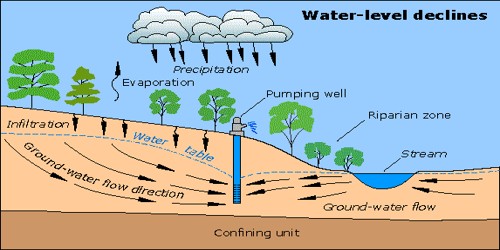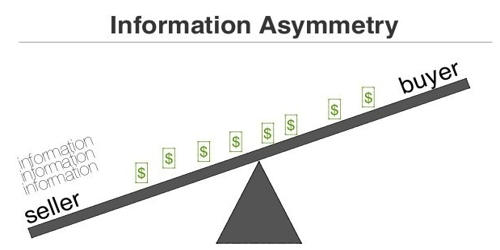Groundwater depletion is a serious threat to the environment. The majority of our bodies and the Earth is made up of water. We may see the beautiful, flowing surface waters that make up the oceans, lakes and rivers, but this water is not always safe for consumption and is much more difficult to filter than groundwater. Consequently, water from the ground is especially valuable.
Use of Recycled water also has a great potential for expansion due to the fact that its water source (wastewater) is in abundant supply, has lower marginal costs, and has a smaller energy footprint than imported water or desalination.
Here focuses some solutions to Groundwater Depletion
With this alarming situation in place, we are still literally flushing our drinking water down the toilet. To prevent this global catastrophe, water conservation measures have to be implemented. Among the water conservation strategies evaluated, expanded use of recycled water stood out as the water conservation strategy with potential to reduce water use, energy use, and greenhouse gas emissions, with relatively small negative impacts for the public’s health.
- As individuals, one of the things we can do to make a difference is to use less water for luxury purposes. We must all address the issue of groundwater depletion. Considering the impending crisis of a mass water shortage, everyone should do their part to use less water whenever possible. Water is used so freely that it is often part of outdoor decor ideas and used for major attractions, such as amusement parks.
- We should reduce our use of chemicals and dispose of them properly. Many people are not paying attention and are simply unaware of how important it is to keep pollution from occurring beneath the ground. The water from businesses and private residences that run into the streets and sewage systems are commonly laden with chemicals. These chemicals find their way into larger bodies of water and absorb into the ground, poisoning animals and the soil. By using less chemicals and discarding of them carefully, we keep them from adding toxic materials into our water supply.
- More comprehensive research and additional funding can help with groundwater depletion. The best way to approach the topic of groundwater depletion and to find a solution is to think on both a personal and government level. Laws that are in place for the pumping of groundwater should be more strict and follow specific regulations. There are many scientists, researchers, and sustainable companies that remind us how important it is to know the amount of groundwater we actually have. They also believe that many of the policies we have should be changed with the consideration of saving groundwater in mind instead of treating it like an endless resource.
- One of the most effective ways to address the issue of groundwater depletion is to find alternative sources of water. Alternative water sources can be used to help replenish aquifers. Deriving water from other sources would also give aquifers time to refill instead of pumping too much water from them at once.
- The pumping of groundwater should be regulated. If we don’t have a better understanding of our groundwater supply, then we can easily use much more than we should. Understandably, more funding should be granted towards researching our groundwater supply instead of just pumping the water, so that we can set limits and better pace our usage. Additional funding should be given to support initiatives that not only study the supply of groundwater we have, but also seek to find sustainable ways to use less of it.
Information Source:
















